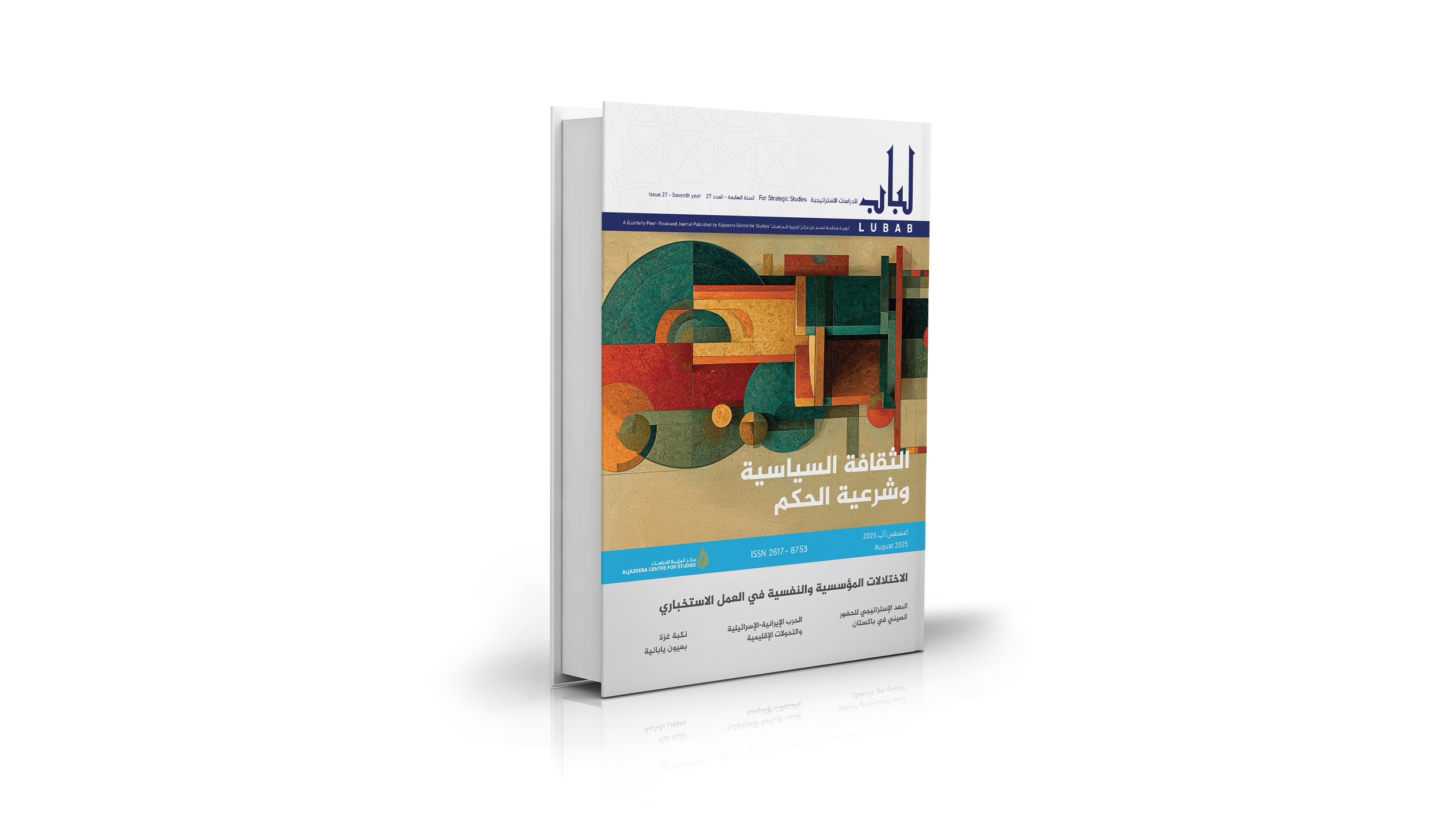
Al Jazeera Centre for Studies has released the August 2025 issue of Lubab for Strategic Studies, a journal packed with insightful analysis on complex geopolitical and intellectual issues. This issue focuses on the fallout from the recent military clashes between Iran and Israel, the expanding role of intelligence agencies, and critical questions surrounding political legitimacy and state-building in the Arab world. Combining on-the-ground reporting with conceptual analysis, the journal examines regional transformations through security, economic and cultural lenses, while looking ahead to their potential consequences amid rapidly evolving global dynamics.
A key theme of this issue is the growing influence of intelligence operations in modern conflicts. A dedicated research section explores the nature of intelligence agencies and their institutional and psychological challenges, and highlights the British model of promoting transparency and accountability within security services. One study delves into what it terms the “pathology of intelligence”, dissecting structural weaknesses that undermine effective security decision-making.
Building on this, the issue sparks important intellectual debates about political legitimacy as a foundation for stability. A central study links legitimacy to political culture and underscores how the lack of consensus between state and society deepens crises. The journal also examines non-institutional expressions of legitimacy, spotlighting Morocco’s “Ultras” as a popular movement that redefines loyalty and belonging beyond official channels.
On the economic front, another study highlights the private sector’s role in fostering integrity – a cornerstone of modern legitimacy – by proposing a strategic partnership among the state, the private sector and civil society aimed at curbing corruption and boosting public trust.
Turning to geopolitics, the journal analyses China’s foreign policy in Asia through the lens of the China-Pakistan Economic Corridor. This initiative is presented as a model of “smart power”, blending development projects with strategic influence, while also questioning the limits of such power in a region wary of geopolitical expansion.
In the Book Review section, Lubab offers a critical analysis of Gaza Nakba 2023–2024: Background, Context, Consequences, a work examining the recent Israeli offensive on Gaza from a Japanese postcolonial perspective. The book restores the Palestinian narrative as a form of symbolic resistance to domination.
The issue closes with an in-depth study of the recent twelve-day military confrontation between Iran and Israel, highlighting shifts in deterrence strategies and power balances, and the use of unconventional tools – from cyber warfare to precise intelligence operations – reflecting a new logic of warfare in the Middle East.
Through this rich blend of perspectives and methodologies, the issue connects questions of political accountability and institutional dysfunction with analyses of geopolitical shifts, encouraging a fresh look at concepts of stability and legitimacy. It ends by posing critical questions to political thinkers:
Can political legitimacy be rebuilt in the Arab world in a way that is both culturally rooted and politically adaptable?
Do societies have the intellectual and institutional means to transform critical insight into real reform?
These questions remain open, inviting further contributions to deepen this vital critical and forward-looking dialogue.
The issue is available in Arabic here.